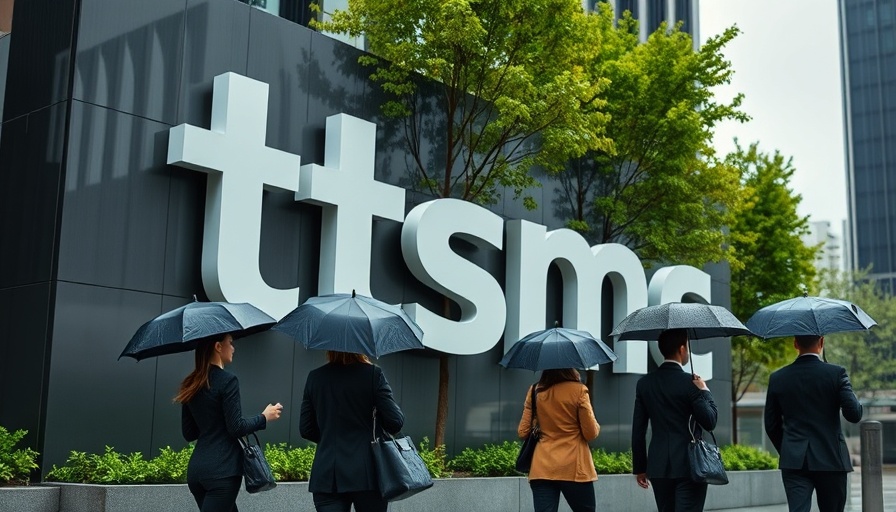
Trump's Tariff Dilemma: Economic Security versus Global Trade
The Trump administration is at a crossroads, grappling with the complexities of imposing tariffs on Taiwanese microchips even as Taiwan Semiconductor Manufacturing Company (TSMC) announces a monumental $100 billion investment in U.S. facilities. This initiative, celebrated at the White House, promises five new fabrication plants in Arizona aimed at bolstering U.S. chip production. However, it hasn't quelled discussions about potentially steep tariffs reaching 100% on imported chips, which could paradoxically jeopardize the very goals the investment is meant to achieve.
Understanding the Semiconductor Supply Chain
Experts highlight that the nature of the semiconductor supply chain complicates the effectiveness of such tariffs. Unlike straightforward commodities, chips from TSMC are not imported in isolation; they are part of complex electronic devices, such as iPhones, which may be manufactured and assembled in multiple countries before reaching U.S. markets. Chris Miller, a Tufts University historian who authored Chip War, notes that attempting to impose jurisdiction over this intricate supply chain would be daunting, potentially leading to legal and logistical challenges.
The Possible Economic Impact of Tariffs
The proposed tariffs come with ambiguous implications for the U.S. tech industry. While TSMC might experience marginal revenue reductions, the long-term consequences for American companies like Apple and Nvidia could mean increased costs passed directly to consumers. Tariffs might raise the cost of chip-enabled products by hundreds of dollars, affecting everything from smartphones to electric vehicles.
Why Enforcing Tariffs Might Be a Burden
Enforcing these tariffs poses another significant challenge, especially as the industry is characterized by global interdependence. Implementing tariffs on components instead of whole products could require an extensive review process for each item entering the market. A Taiwan-based semiconductor expert, using the pseudonym Hsu Mei-hu, warns that imposing tariffs could lead to a bureaucratic nightmare for U.S. authorities—one that companies are likely unequipped to navigate.
Who Stands to Lose?
While TSMC's market strength insulates it somewhat from potential tariff impacts, the same cannot be said for smaller Taiwanese companies involved in chip design and manufacturing. Arisa Liu from the Taiwan Institute of Economic Research points out that these smaller entities may not have the leverage to pass on increased costs to their clients, resulting in significant operational strain. The unintended casualties of any tariffs aimed at TSMC could be the very companies that the U.S. wishes to protect.
The Broader Implications for U.S.-Taiwan Relations
The Biden administration continues to grapple with the varying degrees of dependencies on Taiwan for semiconductor manufacturing amidst looming concerns surrounding national security and trade supremacy. Measures that seem punitive may jeopardize crucial relationships. As TSMC launches its investment, it will encourage competitors to follow suit—if the tariffs don’t stymie their operations first. Historically, Taiwan's semiconductor industry has been a vital asset to the global tech supply chain, and maintaining robust relations is critical for both economic and strategic reasons.
Conclusion: Moving Forward Amidst Uncertainty
Ultimately, the journey of integrating American manufacturing capabilities while maintaining a symbiotic relationship with Taiwanese chip makers is fraught with complexity. Tariffs could act as a double-edged sword, with repercussions that resonate throughout numerous sectors beyond just semiconductors. Executives and decision-makers must remain vigilant, as these evolving economic landscapes dictate changes far and wide.
 Add Row
Add Row  Add
Add 




Write A Comment